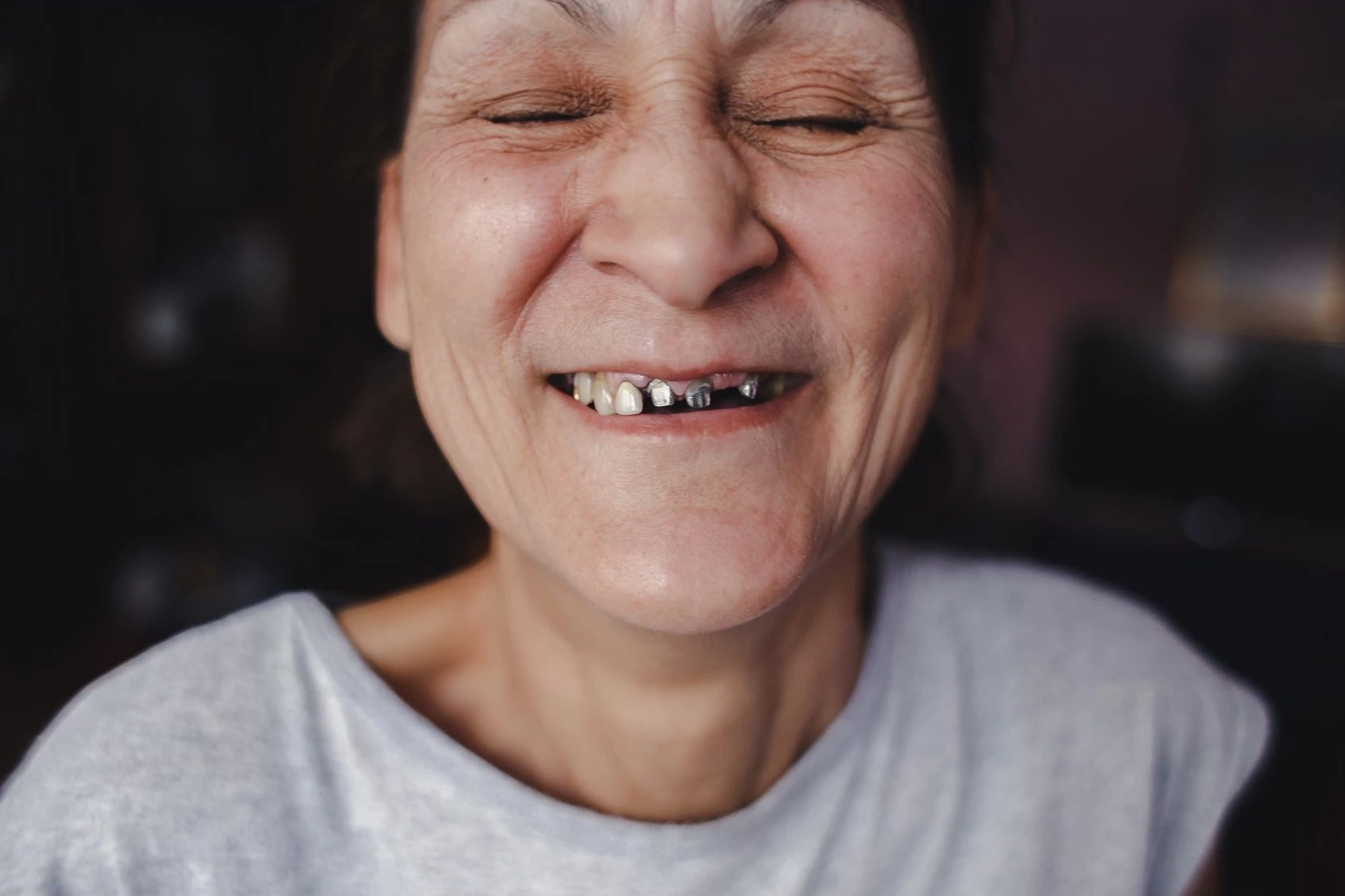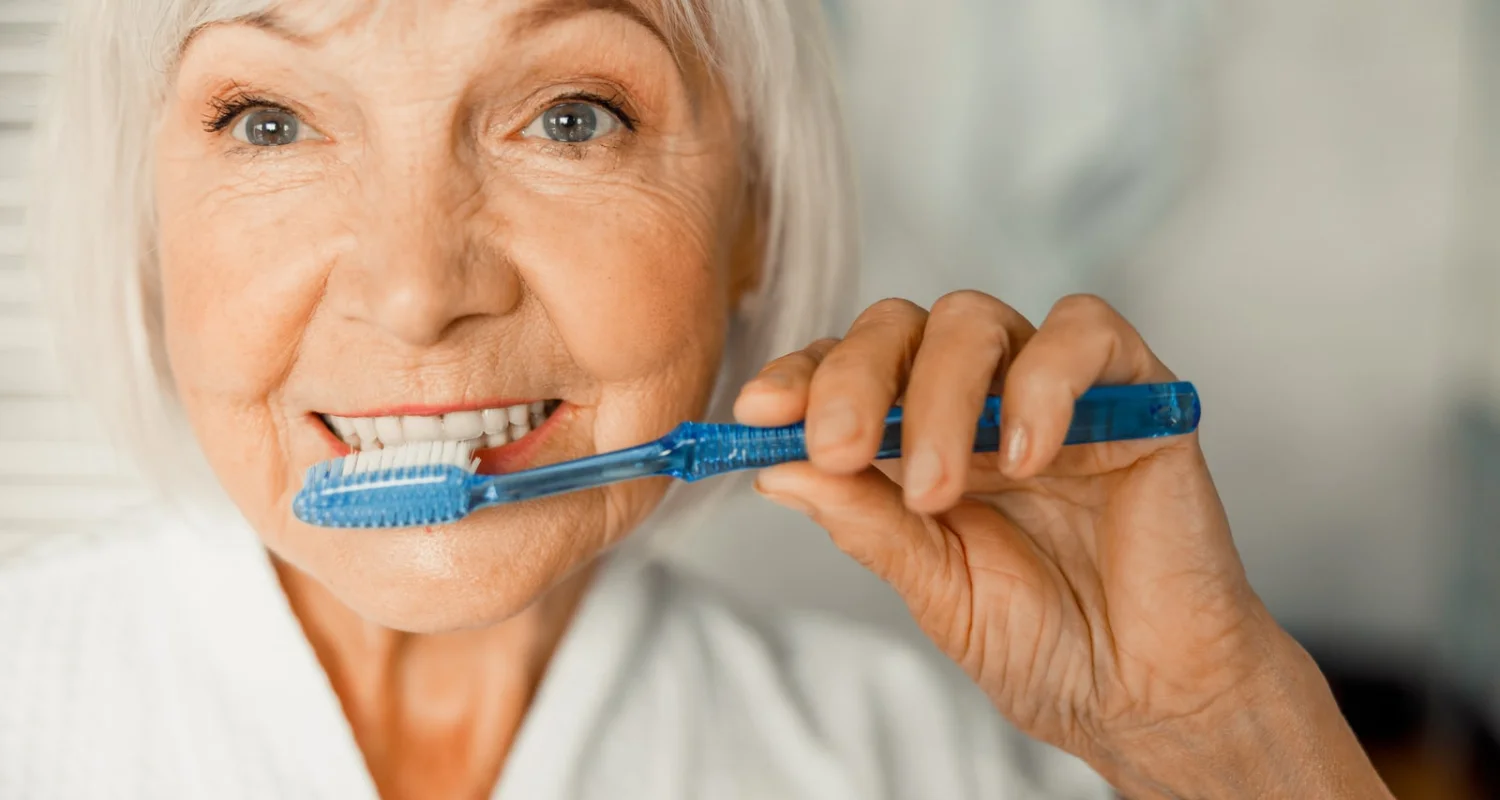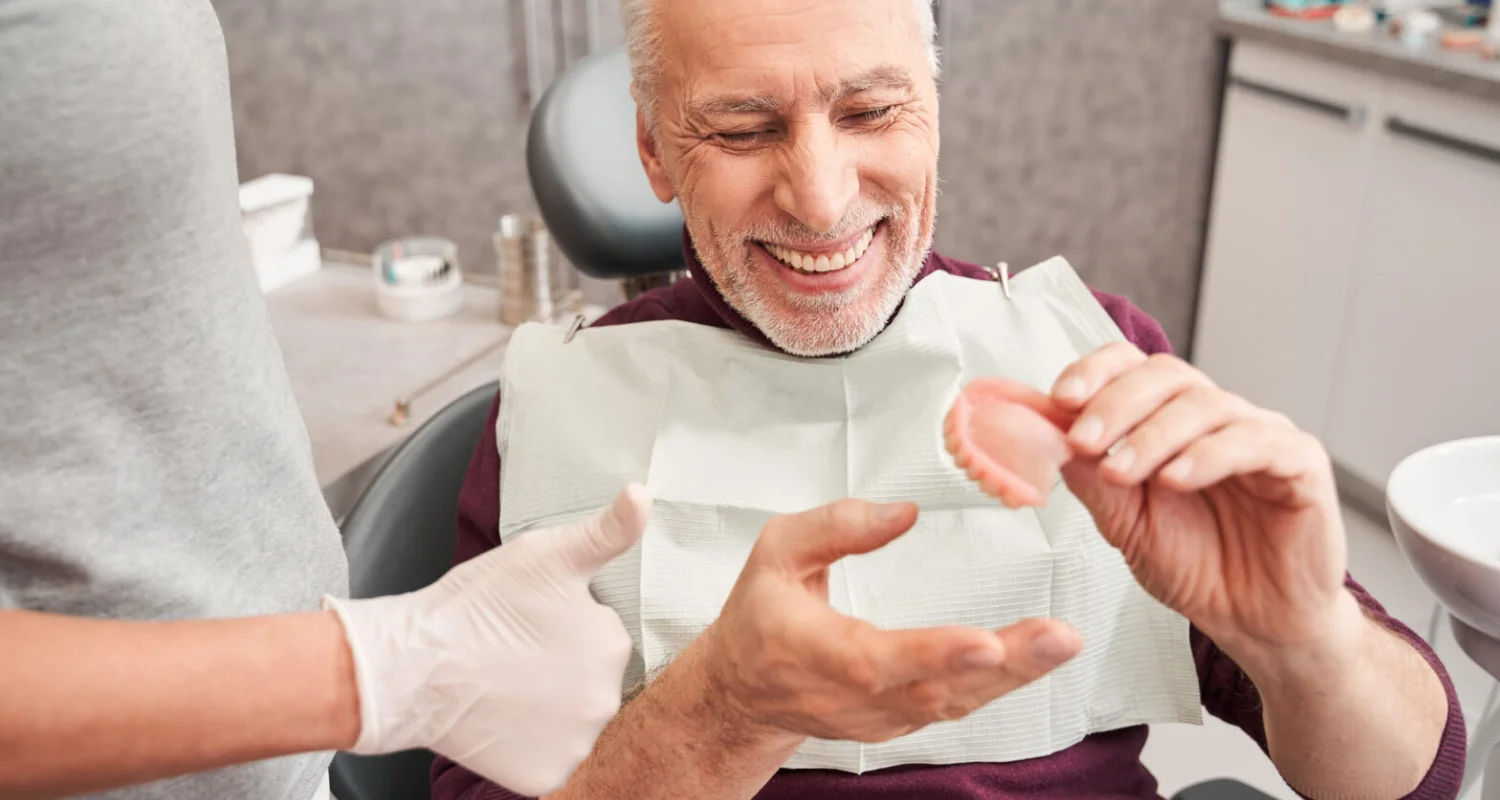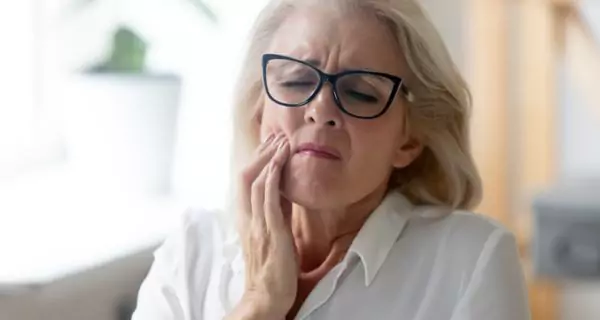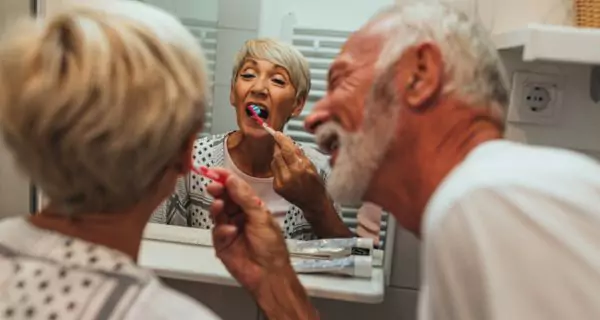Last Updated on: 19th September 2025, 12:43 pm
As people age, they often face dental diseases in the elderly such as tooth wear, gum recession, cavities, dry mouth (xerostomia), gum disease, tooth loss, oral thrush, and an increased risk of oral cancer. While some changes are normal, others need dental care to prevent complications and maintain quality of life.
Growing older is a gift that comes with wisdom and life experiences, but it also brings changes to our bodies, including our mouths. Some of these changes are natural with age, while others are dental diseases in the elderly that need attention to prevent future problems.
In this article, we’ll look at both types of changes to help you understand how your mouth evolves over time. We’ll also share practical tips on how to care for your oral health, so you can keep enjoying this stage of life with comfort, confidence, and a healthy smile.
What mouth changes are normal with aging?
As we age, our mouth naturally changes, even if we’ve maintained good hygiene all our lives. Understanding these changes helps you know what to expect and when to seek help to keep your smile healthy and strong.
Why do teeth wear down as we age?
Over the years, daily activities like chewing, brushing, and grinding cause gradual enamel wear. Severe wear can also make teeth look shorter, flatter, or uneven and increase sensitivity to cold, heat, or sweets.
This wear is a natural part of aging, but habits like chewing ice, biting hard foods, or clenching teeth can accelerate it.
Why do teeth change color with age?
Teeth often become more yellow or grayish with age due to two main reasons:
- thinning enamel: enamel is the outer protective layer of teeth. Over time, it wears down, revealing the dentin underneath, which has a naturally darker yellow tone. This makes teeth look less white, even if they’re healthy.
- stains accumulated over the years: drinks like coffee, tea, and red wine, as well as habits like smoking, gradually stain the tooth surface, adding to the change in color.
Even with good daily brushing, these color changes are common. While professional dental cleanings can remove external stains, internal color changes due to enamel thinning are a natural part of aging.
Why does tooth sensitivity decrease in older adults?
While thinning enamel can increase sensitivity, many older adults feel less tooth pain over time. This happens because the pulp (the inner part of the tooth containing nerves) shrinks with age. With a smaller pulp space and fewer nerve endings, teeth become less responsive to temperature or pressure changes.
However, reduced sensitivity can sometimes hide problems like cavities or fractures, making regular dental check-ups important.
How does taste change with age?
Taste perception naturally weakens as we get older because:
- fewer taste buds: the number and size of taste buds decrease, making flavors feel less intense.
- dry mouth: reduced saliva production limits how well flavors are dissolved and detected.
- health conditions and medications: high blood pressure, cholesterol, and depression medications, as well as infections, liver or kidney disease, and gum disease, can alter taste.
Some older adults may compensate by adding extra salt or spices to food, which can be harmful for blood pressure or irritate gums, while others may prefer hotter foods, increasing the risk of burns or sores.
What dental diseases in the elderly need attention?
While many changes are natural, others are signs of dental diseases in the elderly that need professional care.
Why do gums recede with age?
Gum recession happens naturally over time, but it can be worsened by:
- brushing too hard with stiff-bristled brushes
- gum disease (gingivitis or periodontitis)
- clenching or grinding teeth
When gums recede, tooth roots become exposed. Roots lack enamel, making them more vulnerable to decay and sensitivity. Receding gums can also affect the look of your smile and make teeth appear longer.
What causes dry mouth (xerostomia) in seniors?
Saliva production tends to decrease with age, but medications are the most common cause of dry mouth in older adults. Drugs for blood pressure, heart conditions, depression, allergies, asthma, pain, and neurological diseases like Parkinson’s or Alzheimer’s can reduce saliva flow.
Dry mouth leads to:
- increased risk of cavities, especially root cavities
- difficulty chewing, swallowing, and speaking
- higher risk of oral infections like thrush
- bad breath and taste changes
Why are cavities more common in older adults?
Older adults face a higher cavity risk due to:
- gum recession: exposes roots, which decay faster than enamel-covered areas
- dry mouth: less saliva means less natural cleaning and fewer protective minerals
- plaque buildup: limited dexterity can make brushing and flossing harder
Cavities may develop near old fillings or crowns and often progress faster due to thinner enamel and exposed dentin.
What is gum disease (periodontal disease)?
Gum disease is an infection and inflammation of the gum tissues. It starts as gingivitis, causing red, swollen, bleeding gums, and can advance to periodontitis, which damages the bone-supporting teeth.
This matters because periodontal disease is:
- the main cause of tooth loss in adults
- linked to diabetes, heart disease, and other systemic conditions
- more severe with poor oral hygiene, smoking, or weakened immunity
Why does tooth loss happen with aging?
Tooth loss is common but not a normal part of aging. It often results from dental diseases in the elderly, like:
- untreated cavities
- advanced gum disease
- fractures or injuries
Missing teeth affect chewing, speaking clearly, and facial appearance. Additionally, the jawbone in areas without teeth shrinks over time, affecting denture fit and facial structure.
What is oral thrush (candidiasis)?
Oral thrush is a fungal infection causing creamy white patches on the tongue, inner cheeks, or roof of the mouth. It is more common in older adults due to:
- denture use (especially if not cleaned properly)
- dry mouth
- diabetes
- medications or weakened immune systems
It can cause discomfort, burning, and difficulty swallowing.
What are the signs of oral cancer in older adults?
People over 55 have a higher risk of oral cancer, especially if they smoke or drink alcohol.
Early detection is key, so watch for:
- sores or ulcers that don’t heal within two weeks
- red or white patches
- lumps or thickening in the mouth, throat, or neck
- pain when swallowing
- numbness in the mouth or lips
- swelling of the jaw
- ear pain on one side without hearing loss
If you notice any of these signs, consult your dentist or doctor promptly.
How to care for your oral health in old age?
Taking care of your mouth is essential to prevent dental diseases in the elderly, eat comfortably, speak clearly, and stay healthy. Here are practical tips:
What is the ideal daily hygiene routine?
- Brushing: brush your teeth twice a day with fluoride toothpaste and a soft-bristled brush to protect enamel and gums.
- Flossing or interdental brushes: clean between your teeth once a day to remove plaque that your toothbrush can’t reach.
- Mouthwash: use a fluoride or antiseptic mouthwash if recommended by your dentist to protect against cavities and gum disease.
- Electric toothbrushes: ideal for people with limited hand mobility as they clean more effectively with less effort.
- Water flossers: a great alternative if you have dexterity or mobility issues; they gently remove debris and massage gums.
What if I have dry mouth (xerostomia)?
- Sip water frequently throughout the day.
- Chew sugar-free gum or suck on sugar-free candies to stimulate saliva.
- Avoid sugary, alcoholic, or caffeinated drinks that dry your mouth more.
- Talk to your dentist or doctor if dryness persists; they may adjust medications or recommend saliva substitutes or special moisturizing mouthwashes.
How to care for dentures?
- Clean them daily with a soft brush and mild soap (avoid regular toothpaste as it scratches).
- Soak them overnight in water or denture solution.
- Remove dentures while sleeping to let your gums rest.
- Visit your dentist if they hurt or feel loose to adjust and avoid mouth sores or infections.
What diet helps protect teeth?
- Limit sugars and refined carbs that feed cavity-causing bacteria.
- Eat calcium-rich foods like milk, cheese, and yogurt to strengthen teeth.
- Include fresh fruits and vegetables to help clean teeth naturally and stimulate saliva production.
Why are regular dental visits important?
- Detect dental diseases in the elderly early, like cavities, gum disease, or oral cancer.
- Ensure dentures, bridges, or implants fit well and don’t cause injuries.
- Maintain a healthy, comfortable, and functional smile at every stage of life.
How to prevent dental problems in old age starting young?
The habits you build young protect your teeth for life:
- brush with fluoride toothpaste twice daily.
- floss or use interdental brushes every day.
- visit your dentist at least once a year.
- eat less sugar and more calcium and vitamin-rich foods.
- avoid smoking and excessive alcohol.
- use mouthguards if you play contact sports, and night guards if you grind your teeth.
Growing older is a gift, and taking care of your mouth helps you enjoy it fully. Dental diseases in the elderly can affect how you eat, speak, and smile, but small daily habits make a big difference.
Remember, it’s never too late to brush well, visit your dentist, and care for your teeth. This way, you can keep smiling and feeling good every day.
Frequently Asked Questions
What are the most common dental diseases in the elderly?
Is tooth loss a normal part of aging?
Does aging affect taste and chewing ability?
Can gum disease cause other health problems in the elderly?
Are electric toothbrushes better for seniors?
How often should elderly people see a dentist?
Older adults should see their dentist at least every six months, or more often if they have gum disease, dry mouth, or dentures.
Why do teeth change color as we age?
Teeth change color with age because enamel thins, showing the darker dentin underneath. Coffee, tea, wine, and smoking also stain teeth over the years.
Can seniors get dental implants?
Yes, many seniors can get dental implants if they have healthy gums and enough bone. A dentist can evaluate if implants are a good option for them.
Share
References
1. ADA. (2023, August 24). Aging and Dental Health. American Dental Association. https://www.ada.org/en/resources/research/science-and-research-institute/oral-health-topics/aging-and-dental-health
2. Chan , A. K. Y. , Tamrakar , M. , Jiang , C. M. , Lo , E. C. M. , Leung , K. C. M. , & Chu , C. H. (2021). Common Medical and Dental Problems of Older Adults: A Narrative Review. Geriatrics (Basel, Switzerland), 6(3), 76.https://doi.org/10.3390/geriatrics6030076
3. Gonsalves, W. C., Wrightson, A. S., & Henry, R. G. (2008). Common oral conditions in older persons. American family physician, 78(7), 845–852. https://www.aafp.org/pubs/afp/issues/2008/1001/p845.html
4. MedlinePlus. (2022). Aging changes in teeth and gums. https://medlineplus.gov/ency/patientinstructions/000951.htm
5. Razak, P. A., Richard, K. M., Thankachan, R. P., Hafiz, K. A., Kumar, K. N., & Sameer, K. M. (2014). Geriatric oral health: a review article. Journal of International Oral Health: JIOH, 6(6), 110–116. https://www.ncbi.nlm.nih.gov/pmc/articles/PMC4295446/
-
Nayibe Cubillos M. [Author]
Pharmaceutical Chemestry |Pharmaceutical Process Management | Pharmaceutical Care | Pharmaceutical Services Audit | Pharmaceutical Services Process Consulting | Content Project Manager | SEO Knowledge | Content Writer | Leadership | Scrum Master
View all posts
A healthcare writer with a solid background in pharmaceutical chemistry and a thorough understanding of Colombian regulatory processes and comprehensive sector management, she has significant experience coordinating and leading multidisciplina...


